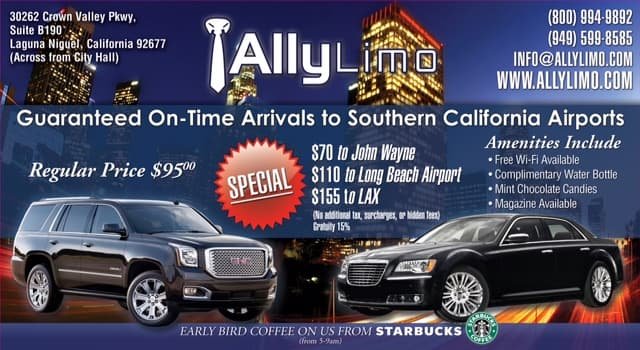Did you know that there is tax on limo service? While it may come as a surprise, the luxury and convenience of hiring a limousine are not exempt from taxation. Whether it’s for a special occasion, corporate event, or airport transfer, understanding the tax implications of using a limo service can help you plan your budget accordingly.
When it comes to limo service, taxes play a significant role. In most jurisdictions, limousine services are subject to various taxes, including sales tax, vehicle registration fees, and fuel tax. These taxes may vary depending on the location and specific regulations of the area. By being aware of these tax considerations, customers can better understand the total cost of hiring a limo service and avoid any surprises. Planning ahead and consulting with the service provider can help you navigate the tax landscape associated with limo services and ensure a smooth and financially sound experience.
When it comes to limo service, many people wonder if taxes are included. While tax regulations may vary depending on your location and the specific limo service provider, it is common for taxes to be included in the total cost. It’s always a good idea to check with the limo company to be sure. This ensures that there are no surprises when it comes to the final bill. Enjoy your luxurious ride without worrying about hidden fees!
![]()
Is There Tax on Limo Service?
Understanding Taxes on Limo Service
Limo services are a popular choice for various occasions, ranging from weddings to corporate events. As a consumer, it’s crucial to understand the potential tax implications associated with hiring a limo service. While taxes on limo service can vary depending on several factors, such as location and type of service, it’s essential to be aware of the common tax considerations.
When it comes to limo service, taxes typically fall into two categories: sales tax and gratuity tax. Sales tax is usually applied to the total cost of the limo service, including transportation charges and any additional amenities. The applicable sales tax rate varies from state to state and is determined by the specific jurisdiction governing the service. On the other hand, gratuity tax pertains to any tip or gratuity you provide to the limo driver. While gratuity is generally discretionary, it’s customary to offer a tip of around 15-20% of the total cost of the service.
Calculating Sales Tax on Limo Service
To calculate the sales tax on a limo service, you need to determine the applicable tax rate and the total cost of the service. Let’s say you hire a limo service for a wedding that costs $1,000, and the local tax rate is 8%. To calculate the sales tax, multiply the total cost ($1,000) by the tax rate (0.08). In this example, the sales tax on the limo service would be $80. However, it’s important to note that sales tax rates can vary significantly based on the jurisdiction, so it’s crucial to check the specific regulations in your area.
Gratuity Tax and Tipping Etiquette
When it comes to gratuity tax, it’s important to understand tipping etiquette. While tipping is not mandated by law, it is customary to provide a tip to your limo driver as a gesture of appreciation for their service. The standard tip for a limo driver ranges from 15% to 20% of the total cost of the service. However, some limo companies include a gratuity charge in the total cost, so it’s important to clarify with the service provider whether a tip has already been included.
Gratuity tax is not a separate tax; rather, it refers to the tax implications of the tip you provide. Unlike sales tax, gratuity tax is not something you pay directly to the government. Instead, it is the limo driver’s responsibility to report and pay taxes on the tips they receive. As a customer, it’s essential to ensure that you provide a fair and reasonable tip while considering the quality of service.
Factors that Affect Taxes on Limo Service
When it comes to taxes on limo service, several factors can influence the overall tax implications. Here are some key factors to consider:
1. Location: Tax rates and regulations vary from one jurisdiction to another. The taxes you pay on a limo service in one city or state may differ significantly from another location.
2. Type of Service: Different types of limo services may have varying tax considerations. For example, airport transfers may have different tax regulations compared to wedding or prom transportation.
3. Additional Amenities: If your limo service includes extra amenities like champagne, red carpet service, or decorations, these additional elements could be subject to additional taxes.
4. Duration of Service: The length of time you hire the limo can also impact the taxes. Some jurisdictions may have different tax rates based on the duration of the service.
5. Cross-Border Travel: If you plan to travel across state lines or internationally, be aware that taxes and regulations may differ. It’s essential to check the specific regulations of the jurisdictions you will be crossing.
Understanding these factors can help you navigate the tax landscape and make informed decisions when hiring a limo service.
Tips for Managing Taxes on Limo Service
While taxes on limo service may seem complicated, there are several tips that can help you manage them effectively. Here are some suggestions to ensure you stay on top of your tax obligations:
1. Research Local Tax Regulations: Start by researching the tax regulations in your specific location. Check with your local tax authorities or consult with a tax professional to understand the applicable tax rates and any exemptions or deductions available.
2. Request a Detailed Invoice: When booking a limo service, request a detailed invoice that clearly breaks down the cost of the service, including any additional amenities. This will help you accurately calculate the sales tax and ensure there are no surprises.
3. Keep Track of Tips: If you provide a tip to your limo driver, make sure to keep track of the amount. While you may not have to report the tip to the government directly, it’s crucial to have accurate records in case of any discrepancies.
4. Consult with a Tax Professional: If you’re unsure about the tax implications of hiring a limo service or need assistance with tax planning, consider consulting with a tax professional. They can provide valuable guidance and help ensure you comply with all relevant tax laws.
By following these tips, you can effectively manage the taxes associated with hiring a limo service, ensuring a smooth and hassle-free experience.
Tax Deductibility of Limo Service
Deductible Expenses for Business Use of Limo Service
If you use a limo service for business purposes, you may be eligible to deduct certain expenses from your taxes. However, it’s important to understand the specific criteria and limitations associated with deducting limo service expenses. Here are some key deductible expenses for the business use of a limo service:
1. Business Travel: If you use a limo service for business travel, such as airport transfers or client meetings, you can generally deduct the cost of transportation as a business expense. This can include the cost of the limo service, including any additional amenities.
2. Entertainment: If you use a limo service for entertainment purposes, such as taking clients to events or shows, you may be able to deduct the expenses as entertainment costs. However, it’s important to note that the deduction is subject to certain limitations, and the entertainment must be directly related to your business.
3. Client Transportation: If you provide transportation for clients as part of your business, such as picking them up from the airport or driving them to meetings, you can typically deduct the expenses associated with the limo service.
4. Promotional Activities: If you use a limo service for promotional activities, such as transporting influencers or conducting marketing tours, you may be able to deduct the expenses as a promotional cost.
5. Commuting Expenses: In general, commuting expenses from your home to your regular place of business are not deductible. However, if you use a limo service for business-related commuting, such as traveling between multiple offices or meeting locations, you may be able to deduct the expenses.
It’s important to maintain accurate records and documentation of your limo service expenses, including receipts, invoices, and any relevant business-related information. Consult with a tax professional or accountant to ensure you meet all the necessary requirements for deducting limo service expenses.
Limited Deductions and Restrictions
While there are certain deductible expenses for the business use of a limo service, it’s crucial to be aware of the limitations and restrictions imposed by tax authorities. Here are some important considerations:
1. Reasonableness: The expenses you claim for the limo service must be reasonable and necessary for your business. It’s important to avoid excessive or extravagant spending, as it may raise red flags during tax audits.
2. Personal Use: If you use a limo service for both personal and business purposes, you can only deduct the portion of the expenses that are directly related to your business activities. This requires careful allocation and documentation of expenses.
3. Substantiation: To claim deductions for limo service expenses, you must substantiate your business use with proper records and documentation. This includes keeping detailed records of the dates, destinations, and business purposes of the limo service.
4. Alternative Modes of Transportation: The IRS may question the validity of deducting limo service expenses if there are more cost-effective means of transportation available for your business activities. Consider the availability of public transportation options or standard car services before opting for a limo service.
To ensure compliance with tax regulations and maximize your deductions, it’s advisable to consult with a tax professional who specializes in business deductions and expenses. They can guide you through the process and help you optimize your tax benefits.
Consult with a Tax Professional
Navigating the tax implications of hiring a limo service can be complex. It’s always a good idea to consult with a tax professional who can provide personalized advice based on your specific circumstances. They can help you understand the applicable tax regulations, identify all eligible deductions, and ensure compliance with tax laws. By seeking expert guidance, you can manage your tax obligations effectively and make the most of your limo service experience.
At the end of the day, understanding the tax implications of hiring a limo service is essential for any consumer. Whether you’re planning a special event or using a limo service for business purposes, being informed about the potential taxes and deductions can help you make informed decisions and manage your expenses effectively. So, before booking your next limo service, familiarize yourself with the tax regulations in your area and consult with a tax professional if needed.
Key Takeaways: Is There Tax on Limo Service?
- Tax can be applied to limo services depending on the location and local regulations.
- Some states may charge sales tax on limo services, while others may have additional taxes or surcharges.
- It’s important to check with the limo service provider or local authorities to understand the applicable taxes.
- Tax rates can vary, so it’s essential to clarify the specific tax amount before booking a limo service.
- Understanding the tax implications can help you budget accordingly and avoid any surprises in the final cost.
Frequently Asked Questions
Are you wondering about the tax implications of hiring a limo service? We’ve got you covered! Here are answers to some common questions related to taxes and limo services.
1. Are taxes included in the cost of a limo service?
Whether or not taxes are included in the cost of a limo service depends on the company you choose. Some limo service companies include taxes in their upfront pricing, while others may add it as a separate charge. It’s always a good idea to clarify this with the limo service provider before making a booking.
If taxes are not included, they will typically be added to the final bill. The amount of tax can vary depending on the location and applicable tax laws. It’s important to factor in taxes when budgeting for a limo service to avoid any unexpected costs.
2. What types of taxes are applicable to limo services?
The types of taxes that may be applicable to limo services can vary depending on the jurisdiction. Common types of taxes include sales tax, value-added tax (VAT), or a transportation tax. The specific tax regulations can differ from one location to another.
It’s advisable to check with the local tax authorities or consult a tax professional to understand the specific tax obligations related to limo services in your area. They can provide accurate information and guidance based on your individual circumstances.
3. Do I need to pay additional taxes on gratuity or tips given to the driver?
In most cases, gratuity or tips given to the driver are separate from taxes. These are typically considered as voluntary payments and are not subject to taxes unless required by local regulations.
However, it’s important to note that tax laws can vary, and there may be specific regulations in some jurisdictions regarding the treatment of gratuity and tips. It’s always recommended to consult with local tax authorities or a tax professional to ensure compliance with the applicable laws.
4. Can I claim tax deductions for using a limo service?
Whether or not you can claim tax deductions for using a limo service depends on the purpose of the service. In general, if the limo service is used for business purposes, you may be eligible to claim it as a business expense and deduct it from your taxable income.
However, it’s crucial to follow the specific tax guidelines and requirements set by the tax authorities in your jurisdiction. Keeping accurate records of your expenses and consulting with a tax professional can help ensure compliance and maximize any potential tax benefits.
5. Are there any special tax considerations for hiring a limo service for special events or weddings?
When hiring a limo service for special events or weddings, there may be some specific tax considerations to keep in mind. Some jurisdictions may have different tax rules or exemptions for special occasions.
It’s recommended to consult with a tax professional or local tax authorities to understand the specific tax obligations and any potential exemptions related to hiring a limo service for special events. They can provide guidance based on your unique circumstances and ensure compliance with the applicable tax regulations.






